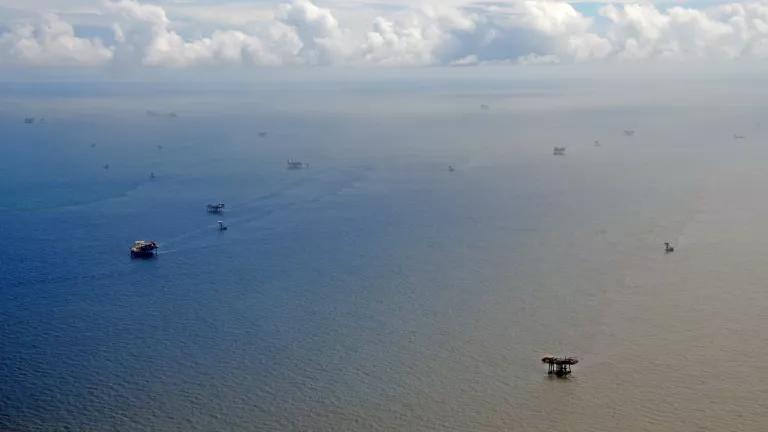
As an oceans scientist I’m cheered by our leaders gathering today at the United Nations to sign the international agreement on global climate action. More people grow concerned about the future each year as they experience first-hand the impacts of climate change, from extreme flooding to more intense wildfires, to drought, and sea-level rise. The signing of the agreement, known as the United Nations Framework Convention on Climate Change (UNFCCC) is a blueprint for global climate action, and a signal that our leaders are taking the crisis seriously and are poised to act.
The future of ocean health depends on world leaders keeping their climate promises. In fact, the oceans are the only ecosystem on earth suffering from two independent impacts of rising carbon dioxide pollution: global warming and ocean acidification.
Ocean acidification is the progressive decline in ocean pH (and carbonate saturation state) resulting from the rise in atmospheric carbon dioxide concentrations. These changes have already harmed many shell-building creatures such as clams, oysters and corals. In more corrosive waters, they struggle to form shells. Lab studies suggest even creatures without shells, like squid and clownfish, may struggle in seawater that is more corrosive.
While the Paris agreement is a big step towards protecting the oceans, it is disappointing that the agreement stays silent on climate change’s ‘evil twin’: ocean acidification. Future versions of this blueprint climate agreement should be expanded to more broadly address how carbon pollution is affecting our oceans. In particular, explicit attention should be given to ocean acidification which will require unique solutions and adaptation measures, such as those taken by the U.S. west coast shellfish industry to buffer the water in their hatcheries.
As currently drafted, The Paris framework will not adequately address ocean acidification. The agreement permits emission reductions in terms of ‘CO2 equivalencies’, including other greenhouse gases, such as methane. However, solving the problem of ocean acidification will require reductions in carbon dioxide emissions, specifically. Reductions in other greenhouse gases will do nothing to ocean acidification. The Paris text also has a review mechanism to ‘take stock’ every five years so that countries can ramp up ambitions to reduce emissions. This re-evaluation should consider the harmful effects of changing ocean chemistry in addition to the impacts from global warming. The agreement further expands financing mechanisms to facilitate adaptation and to compensate vulnerable states for damages; this framework should be explicitly made applicable to harm from ocean acidification, as well.
The good news is that an important first step to obtaining an integrated framework on climate change and ocean acidification was taken this last week when the Intergovernmental Panel on Climate Change (IPCC) announced a special report dedicated to interactions between climate, ocean, and the cryosphere (ice). We applaud the efforts of Monaco, France, as well as numerous NGOs and scientists in this important achievement.




